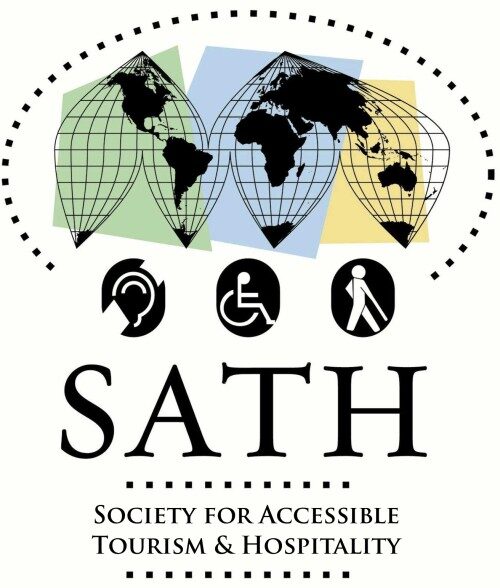A guide for parents and carers
Autism & Airport Travel Safety Tips
November 23, 2001, Port St. Lucie, Florida
By Dennis Debbaudt
Traveling through airport security will never be the same. Every traveler passing through a security checkpoint will now encounter waiting in long lines, having to produce two forms of picture identification at multiple locations, mandatory questioning and inspections of personal belongings by strangers and the increasing likelihood of a light touch from a stranger holding a Geiger counter-like sound producing wand. When you add to the mix the possibility of a complete physical frisk or pat down – and the presence and scrutiny of armed, uniformed paramilitary personnel and contraband-sniffing dogs – the accompanying sensory-enhancing gauntlet of sounds lights and touch can tax the system of any traveler let alone one who has autism. This experience has quickly become standard operating procedure at U.S. airports.
People with autism, parents and caregivers may want to consider taking some extra measures to make passing through a security checkpoint easier.
As daunting as a security checkpoint is for some children and adults with autism, we must consider the point-of-view of the security professional. The behavior or characteristics of the child or adult with autism may make the security professional extremely anxious. Consider the reliance on visual cues and innocent echolalia a person with autism may display, such as repeating a phrase observed on a close-by poster. At a security checkpoint that phrase might include words that cite the laws or warn against the use of the words “bomb threat” or “hijacking.” Someone who repeats this phrase would quickly come under suspicion at a security checkpoint. Those that repeat a question, run from or blanche at passing through a metal detector, or become over-anxious at attempts to touch them would also merit extra scrutiny. Left unexplained, the behaviors and characteristics of some person’s with autism may delay their trip and cause unnecessary anxiety. These encounters are the types of situations that can easily escalate into misinterpretations, verbal and physical confrontations, physical containment and restraint.
As reported in my latest book, Autism, Advocates and Law Enforcement Professionals (www.jkp.com): “Those with autism, parents and caregivers may want to consider carrying autism handout information which would at least include a basic autism brochure, and a person-specific handout that at least includes their picture, description, information about behaviors that security may find suspicious and the best way a security professional can communicate with or interact with that person. Many parents find business card handouts that might contain a message such as ‘Perhaps my son/daughter’s behavior is surprising to you. This is because he/she has autism’, a brief definition of autism, and the phone number/website address of a local or national advocacy organization.”
These are grass roots, one-on-one autism awareness campaigns. Make sure to carry enough generic information to leave behind with the security professionals you may encounter. Anyone reading this message can download the informational handout “Educating the Community…and Law Enforcement” at www.policeandautism.cjb.net make copies and hand them out. An expanded version of this handout and other awareness and educational materials are available in my new book. (available through bookstore at www.autismsociety-nc.org)
If possible, make travel plans well in advance. Call the airlines and security companies (soon to be mainly federalized) and ask what you can do to help the security experience go more smoothly for the person with autism and the security professionals they will interact with. If the trip has to be made suddenly, arrive extra early, bring plenty of handouts and explain to the gate agent what your needs are. Those that have the time may want to inquire with their air carrier about assistance plans they may offer inexperienced travelers. Northwest Airlines, for example, offers the Adult Assistance Program for a fee ranging from $40.00 to $75.00. This may prove to be money well spent. The program offers personal assistance from check-in, through security and boarding and through the destination airport. While the program does not assist with eating, personal hygiene or medication issues, it does provide assistance through the crucial security checkpoints. Parents and caregivers of a passenger using travel assist can also pass through security with their loved even if they are not traveling with them. Special security passes would be issued in lieu of tickets. A program like Northwest Airlines’ Adult Assistance could be utilized by caregivers even if they are traveling with a loved one.
Anticipating the worst is never a pleasant proposition. But it’s something we do all the time in our everyday lives when we put on seat belts, lock our back doors, pay the life insurance. The downside for not doing these things is extremely negative in each example. But do we shudder in fear every time we do these things? Of course not. They are common sense options associated with everyday life. Taking extra precautions is also an everyday consideration that those with autism that can, parents and caregivers also become accustomed to taking. When traveling through our communities, and airports, taking the precautions -alerting security, carrying ID and informational handouts, considering the needs of others, anticipating the possibilities -can help make our trips and travel a lot safer and a lot more relaxing. Give yourself at least two weeks to seek the best that our airlines and airport security can offer. But it’s never too late to alert the airlines and security professionals to a special request for assistance.
Contact author at: ddpi@flash.net
© Copyright 2001 by Dennis Debbaudt
Contact author for reprint permission.
Special thanks to Mike Flotteron of Northwest Airlines for his assistance in preparing this report. Most major airlines offer programs similar to the Adult Assistance Program. Check with your air carrier about special travelers services they offer.

